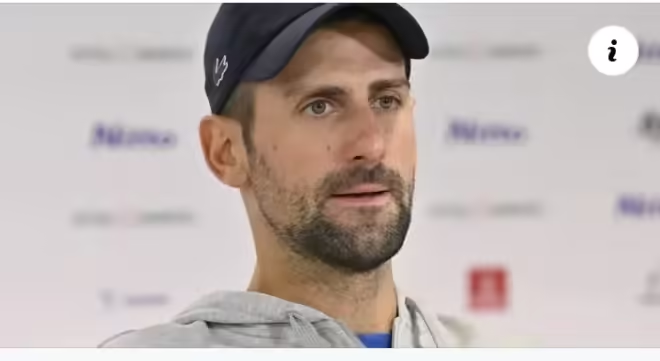
Lacoste’s decision to release a limited-edition Grand Slam tracksuit for Novak Djokovic, celebrating his 25th major title despite him still holding 24, is a bold marketing move that raises several questions about the dynamics of sports branding, athlete legacy, and consumer culture.
Firstly, the decision underscores Lacoste’s confidence in Djokovic’s future success. By releasing the tracksuit before the actual milestone is reached, Lacoste is essentially betting on Djokovic’s ability to win another Grand Slam. This move is emblematic of the brand’s long-standing association with excellence and achievement. Lacoste has been Djokovic’s apparel sponsor since 2017, and this gesture can be seen as a testament to their unwavering support and belief in his capabilities. The anticipation of his 25th Grand Slam adds an element of suspense and excitement, not just for Djokovic fans but for the broader tennis community as well.
Moreover, the release of the tracksuit can be interpreted as a strategic marketing ploy. In the competitive world of sports apparel, creating a buzz around a high-profile athlete can significantly boost brand visibility and sales. Limited-edition items often generate a sense of urgency and exclusivity, prompting fans and collectors to make swift purchases. By capitalizing on Djokovic’s near-milestone, Lacoste is leveraging his fame and the imminent achievement to drive consumer interest. This tactic isn’t uncommon in the world of sports marketing, where anticipation and hype can translate into significant commercial success.
This approach also reflects a deeper understanding of modern consumer behavior. In today’s market, consumers are drawn to products that offer a narrative or connection to a larger story. The 25 Grand Slam tracksuit isn’t just a piece of clothing; it represents Djokovic’s journey, his resilience, and his pursuit of greatness. For fans, wearing this tracksuit is akin to owning a piece of sports history. It’s an emotional purchase, tied to their admiration for Djokovic and the anticipation of his continued success.
From Djokovic’s perspective, this initiative highlights the symbiotic relationship between athletes and their sponsors. While Djokovic provides Lacoste with global visibility and association with his excellence, Lacoste reciprocates by celebrating and promoting his achievements. This mutual benefit reinforces the bond between the athlete and the brand, creating a powerful narrative that resonates with the audience.
However, the decision isn’t without its risks. The most obvious one is the possibility that Djokovic may not win his 25th Grand Slam soon, or at all. This scenario could potentially lead to criticism and a perception of overconfidence or even hubris on the part of Lacoste. The brand’s credibility might take a hit if consumers feel the release was premature or presumptuous. Additionally, in the highly scrutinized world of professional sports, such a move could invite backlash from critics who might view it as an unnecessary pressure on Djokovic.
On a broader scale, this decision speaks to the evolving nature of sports memorabilia and the ways brands engage with their audience. It reflects a shift from purely commemorative merchandise, released post-achievement, to anticipatory products that build a narrative leading up to a milestone. This proactive approach can keep the audience engaged, fostering a continuous connection between the athlete, the brand, and the fans.
In conclusion, Lacoste’s release of the 25 Grand Slam tracksuit for Novak Djokovic, despite him being one title short, is a fascinating blend of confidence, strategic marketing, and narrative building. It demonstrates Lacoste’s belief in Djokovic’s continued success, leverages the power of anticipation to drive consumer interest, and exemplifies the intricate relationship between athlete and sponsor. While the move carries inherent risks, it also holds the potential for significant reward, both in terms of commercial success and in strengthening the emotional bond with Djokovic’s fanbase. In the ever-evolving landscape of sports marketing, this decision by Lac